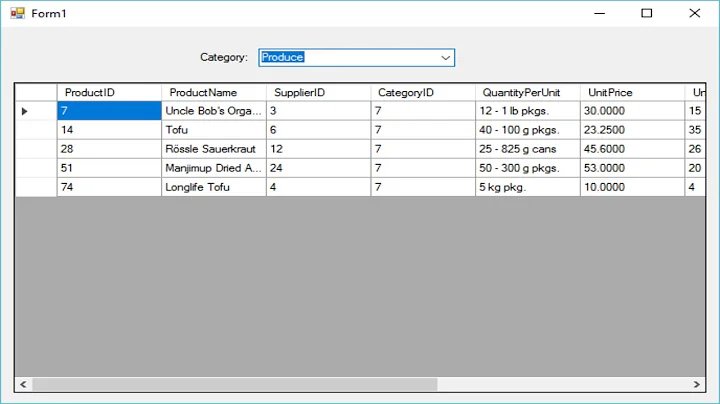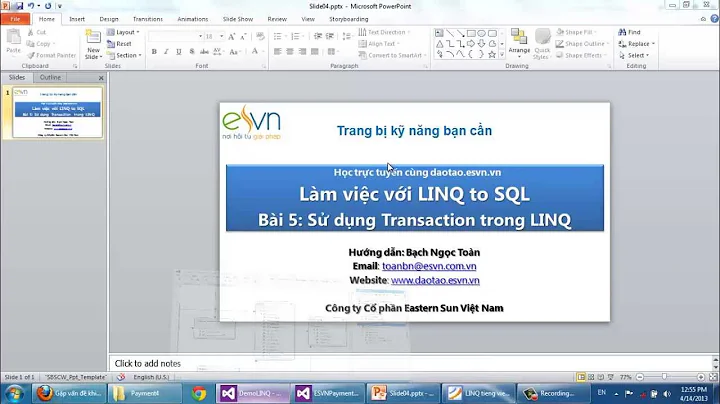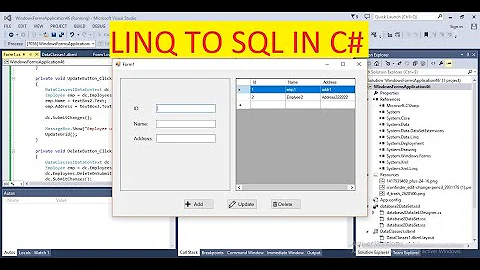Returning a single value with Linq to SQL
Solution 1
Linq, by default always returns collections. If you need a single value, you can apply the .Single(), .SingleOrDefault() or .First() or .FirstOrDefault() methods.
They differ slightly in what they do. Single() and SingleOrDefault() will only work if there is exactly or at most one record in the result. First() and FirstOrDefault() will work, even if there are more results.
The *OrDefault() variants will return the default value for the type in case the result contained no records.
Solution 2
var notify = (from s in db.AccountSettings
where s.UserName == username
select s.NotifyOnComment).DefaultIfEmpty(false).First();
//notify will either hold a bool or the AccountSettings object so
return (!(notify == false)); // Thanks Nick. Amazing what you'll do in a hurry.
Solution 3
var notify = (from s in db.AccountSettings
where s.UserName == username
select s.NotifyOnComment).Count();
return Convert.ToBoolean(notify);
Solution 4
If you expect just one result just use Single or SingleOrDefault to get the bool. If you want the first result you can use First or FirstOrDefault.
Related videos on Youtube
Mike
Updated on July 09, 2022Comments
-
Mike almost 2 years
I'm learning Linq to SQL and I'm having trouble grasping it. I'm trying to simply return a single (boolean) value in C# with a Linq query.
I want to see if the owner of a story would like an email notification sent when new comments are added. I would like the method that contains the Linq to SQL to return a boolean value.
public bool NotifyOnComment(string username){ var notify = (from s in db.AccountSettings where s.UserName == username select s.NotifyOnComment).DefaultIfEmpty(false); // clueless }Update:
I'm doing the following now:
var notify = (from s in db.AccountSettings where s.UserName == username select s.NotifyOnComment).SingleOrDefault(); return (bool)notify; -
Mike over 14 yearsNow what if there's a chance (and there will be) that no record exists yet. Which of those three would be best in that situation?
-
Rich over 14 years+1. Actually you got a working solution in contrast to me :-)
-
Rich over 14 yearsTo be precise, a working solution might require more than just that, so look below to Justin's answer. He probably got exactly what you need.








